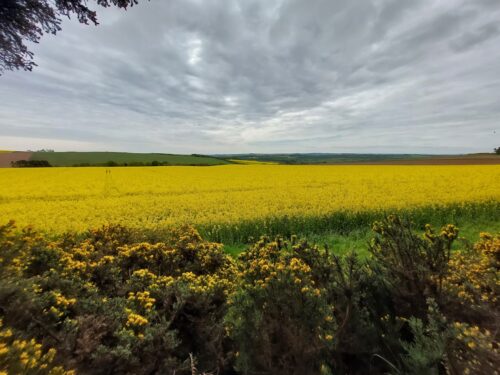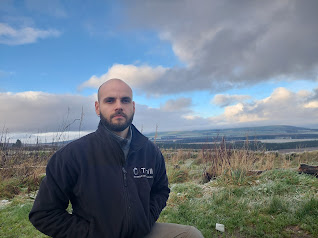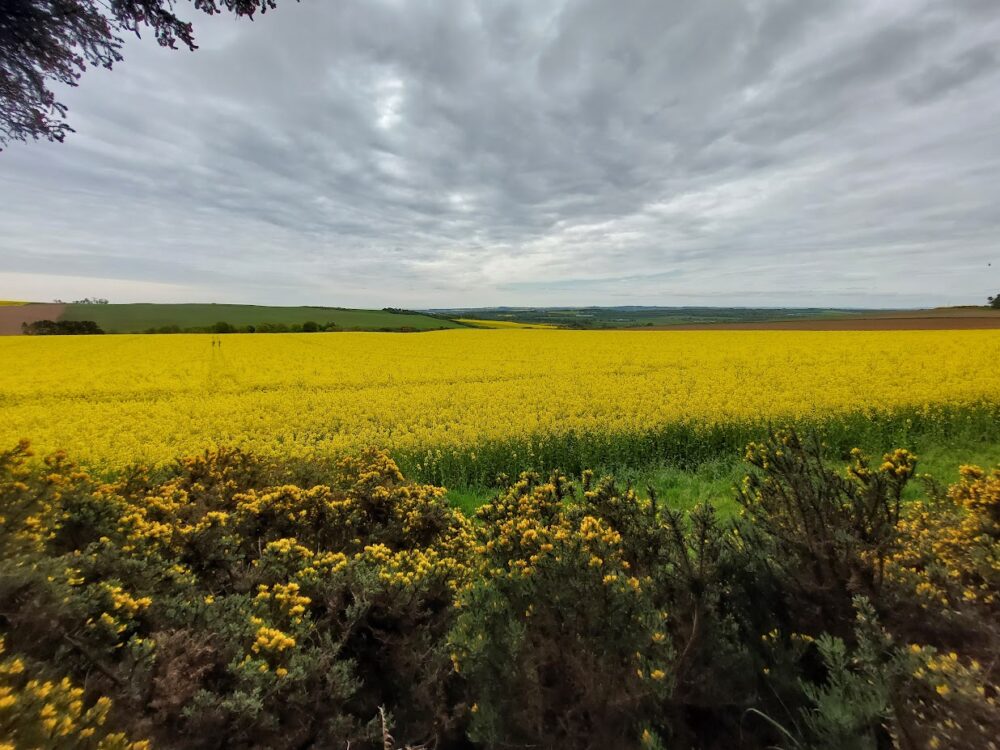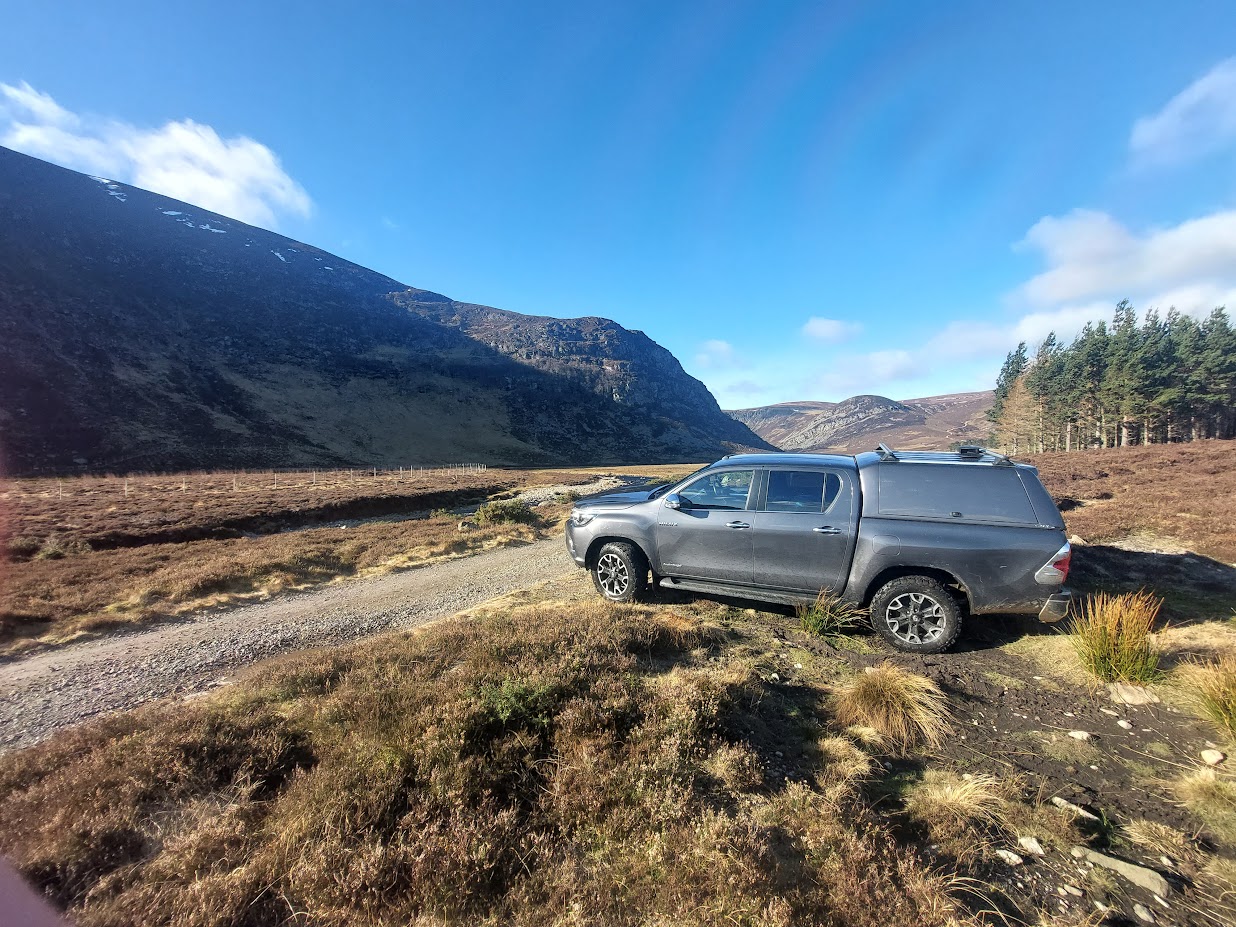
Growing up, I lived in a tenement flat just a 15-minute walk from the centre of Edinburgh. Granted, it’s not one of the biggest cities in the world and I had a higher-than-average amount of green space that I could access nearby, including a historic patch of ancient woodland preserved in the Hermitage valley. However, it was still a very urban upbringing with my interactions with the countryside mainly from camping holidays or stays in rural villages with my family.
Despite this, I find myself working in the countryside and rural landscapes of Scotland now, and I am happy to be part of it. It feels right, and it’s where I have wanted my career to be based for many years now.
As I grew up, learning about the importance of the rural sector in providing us with food, clean water, materials for everyday life, and basically all the natural resources that people living in all regions rely on daily, piqued my interest. Then, the realisation that the working countryside is one of the main links we have between the industrialised, urban world most people live in and the natural world that many people think we have left behind inspired me to seek a career in this sector.
My original path was geared more towards ecology and scientific research, and therefore most of my knowledge was based on textbooks and journal articles and research studies. After deciding to direct my career into the forestry sector, I realised I lacked a lot of the practical knowledge that many people growing up surrounded by the working countryside have innately learned throughout their upbringing. It’s intimidating as much as it is fascinating to me. I can’t imagine at this point just how long it will take for my theoretical, book-based knowledge of the natural world and people’s interactions within it will take to fit in with the vast amount of complex and nuanced experience-based information that I am learning daily with this job, but I am enjoying the challenge and the journey.
It’s not only learning more about the natural world, but also the complex interactions between landowners, stakeholders, farmers, estate tenants, public service bodies, government regulatory bodies, the public and anyone else who might share the land we work with.
I’m struggling to get to grips with the incredible number of different machines and tools that have been developed and are used in forestry and the rural sector. Terminology and jargon related to general land management and the techniques different operators and contractors use.
I love it, but it’s a steep learning curve for someone who grew up in the city reading about all these things without very often being able to experience them first-hand. Makes everyday a learning experience and keeps me curious and excited to continue and expand my learning.
A blog post by Daniel Ridley
Daniel joined the Tilhill graduate programme in September 2022 as an Assistant Forest Manager after graduating from Bangor University with an MSc in Environmental Forestry.

Daniel Ridley
Find out moreJoin Our Graduate Programme
Opening soon





